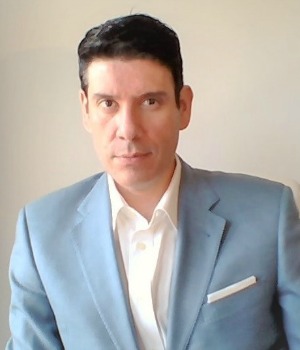Fostering the advancement of knowledge is a universal sign of progress. It is our social responsibility as researchers not to let empowered fear, ignorance, or hate provide the answers society more than ever needs.
Millions across the planet find themselves homeless, dying from incurable diseases, struggling to meet their most basic needs, preparing for or working in jobs that will soon disappear, or escaping from different forms of violence to encounter dissimilar forms of indifference, discrimination and, in some instances, more violence. At the same time, an increasingly anxious and frightened society finds itself divided, alienated, hopeless.
Without sharing the knowledge we develop with the media and the public, there will soon be no society to serve but only tribes to please.
Making research accessible to all
Becoming an academic, however long and hard the path may be, cannot simply presuppose a personal entitlement. I firmly believe that it is our duty to society to reach beyond specialized and selected audiences and make our research findings – like education itself – accessible to all. We must, therefore, step forward, having tested our theoretical contentions and scientific claims, share our findings, and discuss their implications with the public at large. After all, scholarly contributions are ultimately oriented at advancing solutions to aid society and the public.

Disseminating our research through the media makes the scientific process more understandable and leaves an inescapable public record. It can also generate public interest in issues that might otherwise be neglected while leading others to solutions that may not have even been considered. And although not entirely immune to external influences, this critical connection nonetheless fosters a more intelligent public debate by providing compelling evidence and readable sources of information, while making the media in general, and the public in particular, less susceptible to modern forms of manipulation (social media, deepfakes, special interest, extremism, populism).
We live, moreover, in a paradoxical world. Steadily close to mankind’s greatest technological transformation (quantum artificial intelligence) which is likely to alter our fundamental understanding of human interaction and purpose; yet surprisingly far away from overcoming the traces of a less evolved and civilized world (racism, xenophobia, anti-Semitism, violence).
In light of these and the many challenges that lie ahead (forced migration, socioeconomic inequality, climate change, corporate democracies, automation, cybersecurity, decreasing food supply, habitat conversion, industrial overexploitation, domestic terrorism, epigenetic threats, etc.), sharing our knowledge with the media and the public becomes increasingly important.
Disseminating work in media “provides both clarity and consistency”
On a personal note, sharing my research through the media both in Canada and abroad has proven a rewarding experience.
During my three years at McGill, I have met and interacted with news anchors, radio presenters, tv producers, newspaper editors, national and international correspondents, as well as journalists specialized in immigration, international affairs, science and technology. I can say, with no hesitation, that every single encounter gave me a different perspective on my own work.
As it turns out, exposing one’s work and convictions to the media and, in the process, the public, provides both clarity and consistency. It can, sometimes, influence public opinion. In truth, nothing has been more helpful in grounding my perspective and reviewing the factual basis of my research on human rights, migration, democracy, and technology than assisting the media, or volunteering, helping those in need.
Winning the 2018 Principal’s Prize for Public Engagement through the Media has been one of the greatest honours of my career — particularly considering the quality and the importance of the research work that was communicated through the media by dozens of graduate students, postdoctoral fellows, and research associates while making their mark at McGill and beyond. To them, my most sincere acknowledgement, to those who nominated me, my inestimable gratitude, and to those yet to come, a hint: let the world know how you can change it.
****
For the 2019 Principal’s Prize for Public Engagement through Media, awards will be given out in four categories:
- A Prize for graduate students and post-doctoral fellows – for those who are just starting to work with media and engage with the public;
- An Emerging Researcher Prize – for those who are no more than 10 years beyond their PhD or other highest degree;
- A Prize for Established Academics – for those who are 10+ years beyond their PhD or other highest degree; and
- A Prize for Collaboration – for groups of undergraduate or graduate students that engage with the external community and/or the media.
The winners in each category will receive a cheque for $5,000. The deadline to apply is January 31, 2020 at midnight.
Get more information about the 2019 Principal’s Prize for Public Engagement through Media.
